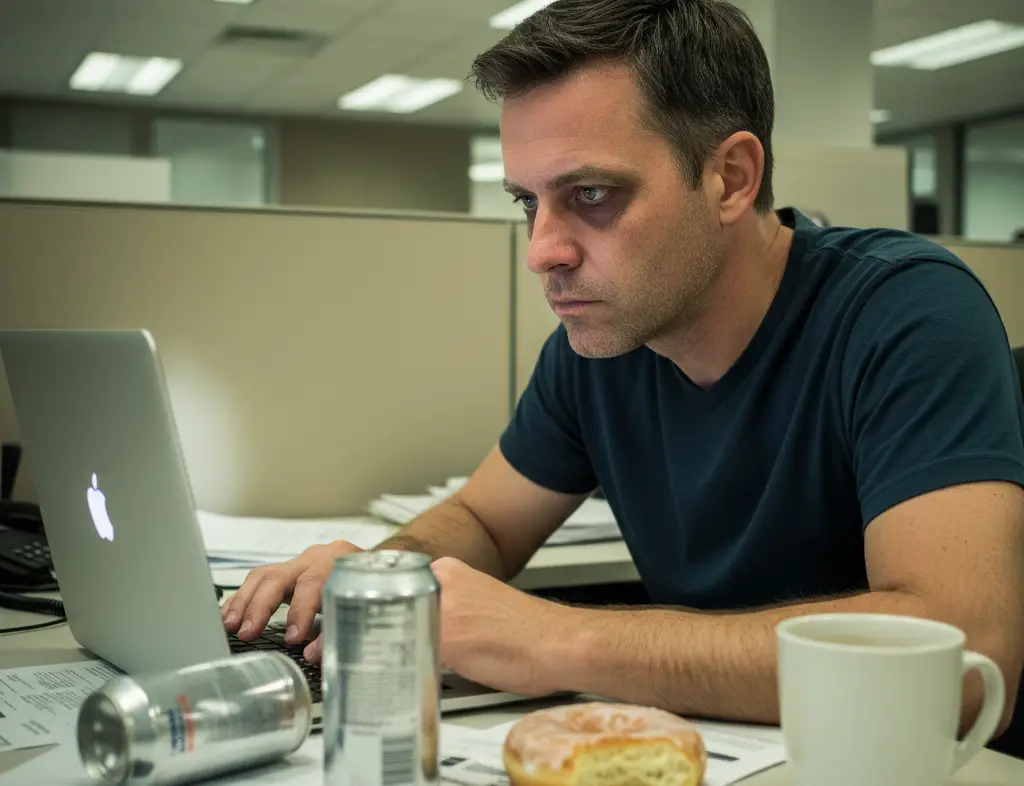When Doctors Say “Stop That!”: 12 Patient Habits Experts Are Warning Against

We’ve all been there—you walk out of the doctor’s office, nodding politely as they list off suggestions, thinking, “I’ll get to that later.” But here’s the truth: those “little” habits your doctor keeps warning you about aren’t just nagging—they’re often the quiet culprits behind bigger health issues down the road.
Doctors across the United States are sounding the alarm about certain patient habits that seem harmless on the surface but can seriously affect your long-term health. From skipping checkups to relying too heavily on caffeine, these everyday choices add up. The good news? Most of them are fixable with a little self-awareness and effort.
Here are 12 habits doctors wish you would stop—and what you can do instead to stay healthy, energized, and thriving.
1. Skipping Regular Checkups and Screenings

“Routine” checkups may sound boring, but they’re one of the most powerful tools for catching health problems early. Whether it’s a blood pressure test, cholesterol screening, or colonoscopy, these appointments allow doctors to spot issues long before symptoms appear. Yet many people wait until something feels wrong—and by then, it’s often harder (and more expensive) to treat. Think of your doctor as your personal maintenance crew. A quick tune-up now can prevent a full-blown breakdown later.
2. Holding Back the Full Truth

We get it—it can be awkward to admit you skipped your meds, smoked “just a few times,” or eat ice cream every night. But your doctor isn’t judging you; they’re trying to help. Leaving out details about your lifestyle, habits, or symptoms can make it harder for them to give you the right care. Honesty really is the best medicine here. Being upfront gives your doctor the full picture so they can help you in the most effective way possible.
3. Trusting Dr. Google Over Your Actual Doctor

It’s natural to want answers fast, especially when something feels off. But self-diagnosing online can be a dangerous game. What starts as a mild headache can quickly spiral into an internet rabbit hole that convinces you it’s something far worse. While researching your symptoms can be helpful for context, it’s not a replacement for professional care. The internet doesn’t know your medical history—but your doctor does.
4. Ignoring Prescription Instructions or Stopping Medication Early

Many people stop taking prescribed medication the moment they start feeling better, assuming they’re “cured.” But quitting early or skipping doses can cause your condition to return—or worse, make it resistant to treatment. Doctors often see patients who could have avoided complications simply by following through with their prescriptions. If you’re having side effects or struggling to stay consistent, talk to your doctor instead of quietly stopping. They can adjust your plan and help make it easier to stick with.
5. Brushing Off Early Warning Signs

A twinge of chest discomfort, unusual fatigue, or a mole that looks different might seem like no big deal—but these small signals can be your body’s early alarm bells. Many serious conditions start quietly, and waiting too long to act can make treatment much harder. Doctors often say they’d rather see you “too early than too late.” So if something feels off, listen to your gut and get it checked out.
6. Running on Too Little Sleep

In today’s “hustle” culture, getting by on five hours of sleep has almost become a badge of honor. But chronic sleep deprivation doesn’t just make you groggy—it can raise your risk of heart disease, diabetes, and even depression. Doctors consistently rank good sleep as one of the most powerful (and underrated) health tools available. So ditch the late-night scrolling, create a bedtime routine, and aim for seven to eight hours. Your body and brain will thank you.
7. Using Caffeine, Sugar, or Alcohol as Energy Boosters

That extra cup of coffee or nightly glass of wine might seem harmless, but when it becomes your go-to way to cope, it’s time to pause. Relying too much on caffeine, sugar, or alcohol to get through the day can cover up bigger issues—like chronic fatigue, stress, or anxiety. Your doctor would rather you find balance through healthier habits like better sleep, hydration, and mindful breaks. Caffeine has its place—but it shouldn’t be your only lifeline.
8. Skipping Exercise Altogether

You don’t need to run marathons or lift heavy weights to stay healthy. Even short bursts of activity—like walking, stretching, or gardening—can do wonders for your heart, mood, and mobility. Yet many people still live largely sedentary lives, especially with work-from-home routines and endless streaming services at our fingertips. Doctors stress that consistent movement, not perfection, is what matters most. Start small: a daily walk around the block beats waiting for “the perfect time” to hit the gym.
9. Ignoring Mental Health Warning Signs

Feeling anxious, withdrawn, or unmotivated isn’t something you should just “push through.” Mental health struggles are just as real as physical ones, and ignoring them often makes things worse. Doctors say they’re seeing more patients who delay care because they’re afraid of stigma or think their feelings “aren’t bad enough.” The truth? Early support—whether through therapy, medication, or simple lifestyle changes—can make recovery much easier.
10. Thinking a “Sort of Healthy” Diet Is Good Enough

Eating well doesn’t mean perfection, but it does require awareness. Many Americans believe they’re eating healthy because they include a salad now and then, yet much of their diet still comes from processed foods, takeout, and sugary drinks. Doctors warn that chronic poor nutrition fuels inflammation, fatigue, and long-term disease risk. Instead of chasing diet fads, focus on simple swaps: more whole foods, fewer packaged ones, and enough hydration throughout the day.
11. Underestimating the Dangers of Smoking and Vaping

Even “light” smoking or occasional vaping can cause real harm. Many patients assume that cutting back or switching to e-cigarettes makes them safe—but doctors disagree. Any level of nicotine exposure affects your lungs, heart, and circulation. The good news is that quitting—even after years—can dramatically improve your health within weeks. If you’re trying to stop, talk to your doctor about support options. You don’t have to tackle it alone.
12. Avoiding Conversations About Costs or Insurance

Money can be an uncomfortable topic, but avoiding it can backfire. Many patients skip treatments or prescriptions simply because they’re afraid to ask about price or coverage. Doctors say they’d rather you bring it up so they can help find affordable alternatives. There are often generic medications, assistance programs, or flexible care options you might not know about. Remember, your doctor wants you to follow through—not avoid care because of financial stress.
Final Thoughts

Doctors don’t warn us about these habits to nag or shame—they do it because they see, day after day, how small choices can lead to big consequences. Most of these habits start innocently: you get busy, tired, or think you’ll handle it later. But over time, they can quietly chip away at your health.
The encouraging part is that change doesn’t have to be overwhelming. Start with one thing—maybe getting more sleep, being honest at your next appointment, or finally booking that checkup. Each small step builds momentum, and soon those healthy habits become second nature.
Your doctor isn’t just there for when you’re sick—they’re your partner in staying well. So next time they raise an eyebrow about your habits, take it as a sign that they care. After all, good health isn’t about perfection—it’s about progress. And every positive change you make today brings you one step closer to a healthier, happier you.
Leave a Reply